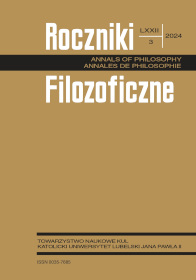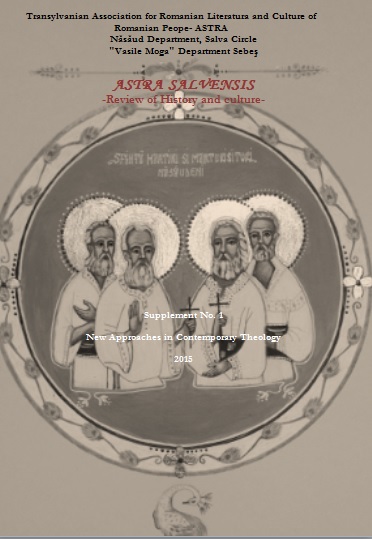
Die Ethik des Seins oder Was für ein Mensch sollte zum Objekt der Ethik, Philosophie und der Theologie werden?
This is a research about ethics and philosophy, that valorifies the ideas of Saint Thomas d'Aquino.
More...We kindly inform you that, as long as the subject affiliation of our 300.000+ articles is in progress, you might get unsufficient or no results on your third level or second level search. In this case, please broaden your search criteria.

This is a research about ethics and philosophy, that valorifies the ideas of Saint Thomas d'Aquino.
More...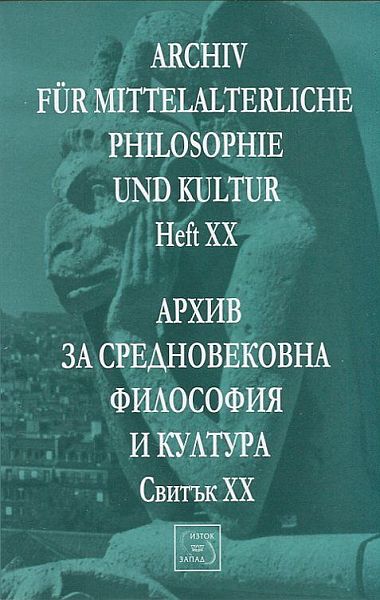
The text will try to show that the concept of “possibility” by John Duns Scotus plays a major role in the new way in which metaphysics begins to be considered, namely its transformation from ontotheology to ontology. Scotus is focusing his argument of God’s existence on the cross point between logic, ontology and the limits of natural reason. The stress that the Doctor Subtilis puts on the boundary of natural human intellect becomes later a major philosophical problem, reconsidered by the Scotistic metaphysical tradition and later by the critical theory of Immanuel Kant. We aim to demonstrate, that the epistemological teaching of Scotus should not be reduced simply to logics, because it has “ontological implications”, that are allowing him to make metaphysical conclusions with the help of arguments, based only on natural reasoning. We examine the usage of the concepts possibility and necessity, the logical law of Scotus and his argument on existence of God and show, that the ontological implications within the logical argumentation of the Scottish master allow him to make metaphysical conclusions, which results into the shift between ontotheology to ontology, where the first known by the intellect is maintained to be the univocal concept of being qua being, that is marking the positive boundary of human natural intellect, where logic and ontology coincide and build the ground for metaphysics, understood as scientia transcendens.
More...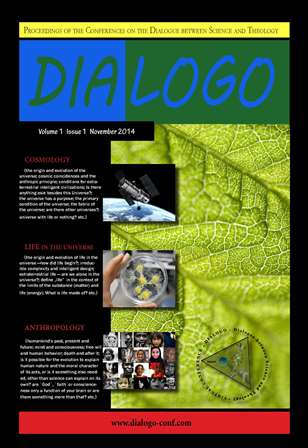
The famous Galilean question was to become the paradigm of the conflict between Nature and Scripture, science and faith, free research of natural reason and authority of the ecclesiastical institution, obscurantism of the medieval period and scientific progress which would illuminate the modern age. It is well known that the stereotype of the pure conflict between scientific thought and religious dogma for long dominated the interpretation of the most profound essence of the Middle Ages, as an obscurantist age in the grip of the universalist political and religious authorities. This image of the Middle Ages was greatly corroborated by the Humanist writers of the Renaissance and Enlightenment historiography. This contribution purports to analyse late–medieval science from a holistic methodology based on history of science and philosophy of science, to obtain a big picture in front to Scientific Revolution and to show the cultural roots of the different images of the universe.
More...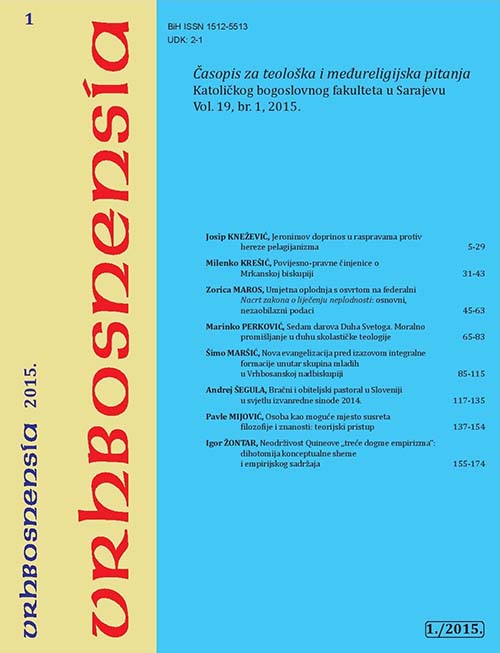
Despite an insufficiently developed pneumatological dimension in moral theology, in the first part of this article the author points to the active presence of the Holy Spirit in the life of Christians. (e notes that anonymity and namelessness are defining characteristics of the Third Person of the Trinity. Therefore, the very activity of the Spirit is hidden, which means it is difficult to show it in a systematic way. As the Spirit works in the soul and through seven gifts that empower and strengthen Christians in the way of holiness, the second part of the article describes each gift individually. After this the author offers some insights and conclusions in the final part: the gifts of the Holy Spirit are not noticeable in the lives of many baptized Christians because these people may not be open to such a course of action of the Spirit. )n addition, many believers do not know or have forgotten that these gifts really exist. Therefore, at the end of the article the author encourages devout Christians to remind their fellow believers that in their inner being there is the hidden treasure of the Holy Spirit and that this needs to be brought to the surface so that it can enrich them and others. If they succeed, they will become inwardly freer, more faithful to Christ, more responsible and more morally mature.
More...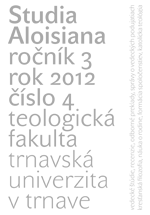
The paper enounces a renewed interest in Thomas’s theory of natural law in the context of contemporary moral-philosophical scene. It presents several reasons of this turn as well as reasons of its only a partial success. Further, it pursues how the Thomas’s natural law theory can sustain the platform of universality in ethical values, at the same time respecting the historicity and the diversity of subjects and cultures. It shows the neglected difference between the permanent universal and variable derived precepts. Universal principles guarantee the possibility of the agreement in the most universal values. Derived precepts, referring the principles to the unrepeatable circumstances and allowing the graduality of man’s progression in moral life, guarantee the possibility of difference. Finally, the paper concludes that the Thomas’s natural law conception offers the vision of how people as rational beings can arrive to mutual comprehension concerning the most important aspects of the good and the evil, sustaining the cultural differences in which they differ.
More...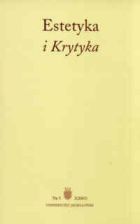
W artykule skoncentrowano się na dyskursach o muzyce, które są obecne w Wyznaniach Augustyna – dziele wyróżniającym się na tle innych tekstów autora ze względu na swój niejednorodny (autobiograficzny, filozoficzny, teologiczny) charakter. Celem artykułu jest zbadanie relacji, którą można określić jako niedokonany projekt racjonalizacji myślenia o muzyce. Po pierwsze, w tekście widoczny jest wpływ greckiego sposobu myślenia, zgodnie z którym sztuka ta stanowi odbicie matematycznego porządku wszech-świata, będąc całkowicie podporządkowana rozumowej harmonii, a także ethosowi, regulującemu jej funkcjonowanie w społeczeństwie. Pod tym względem Wyznania można porównać do dzieł filozoficznych Augustyna, w których ta koncepcja dominuje. Augustyn, jako chrześcijanin, włącza do swojej myśli także hebrajskie dziedzictwo pojmowania muzyki, na czele z Księgą Psalmów. Autor artykułu stara się wydobyć ten drugi dyskurs jako mniej znany rys myśli Augustyna i pokazać, jak kwestionuje on i dekonstruuje zamiar racjonalizacji muzyki.
More...
Ovi tekstovi su predviđeni kao zapisi, zapamćenja i ulomci koji su predavani još 1979./80. godine, kao i tekstovi prisjećanja i elemenata koje sam zapamtio predajući niz godina filozofiju u srednjim školama te na sveučilištu Hercegovina (Fakultetu društvenih znanosti). Naravno, nije riječ o povijesti filozofije, već o tekstovima koji su zapisani, zacrtani u mnogim udžbenicima i hrestomatijama, pa je tako ovaj tekst – čitateljski, koji može poslužiti u pojedinim slučajevima kao podsjećanje na izvođenje nekih nastavnih jedinica.
More...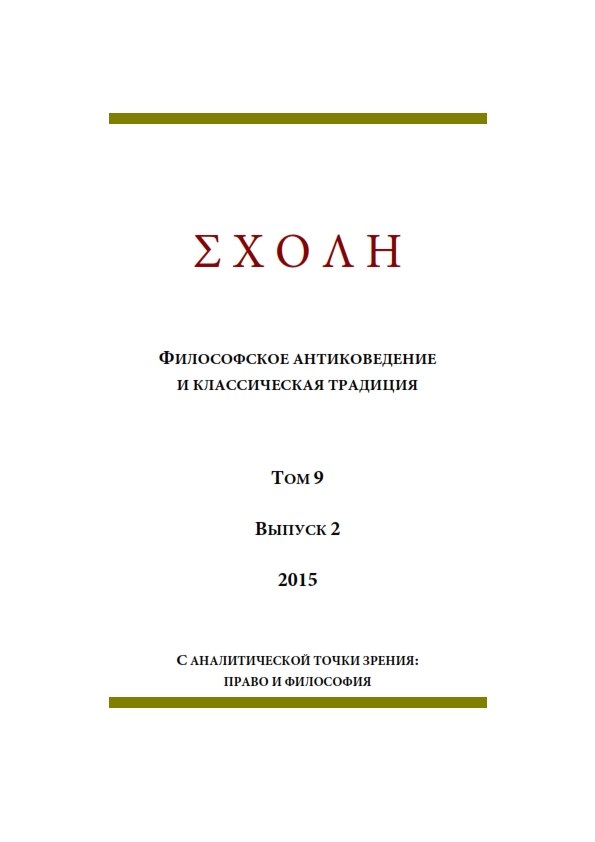
The author supposes that the Tetragrammaton’s interpretation, attested in Ex. 3:14, exerted direct influence on the formation of the conception of single, eternal, and infinite God’s substantia, reflected in Augustine’s “Confessions”, book vii and in Spinoza’s teaching.
More...
The Greek word ‘schesis’ in the works of Gregory Nazianzen has generally been translated as ‘relation’ and interpreted as a programmatic term for his doctrine of Trinitarian relations. Although this may be a valid interpretation of the terminology of other 4th century theologians, this is not true of Gregory. His usage of the word ‘schesis’ does not correspond with the traditional Aristotelian or Stoic ways of designating a relation. It denotes a status or a disposition, it may even mean a place in a relation, but it is not the relation itself, and not a disposition towards another. Therefore all the interpretations of Gregory’s teaching on the Trinitarian relations are to be revisited and reformulated more carefully, keeping in mind the peculiarity of his usage of ‘schesis.’
More...
Observing the history of reception of Origen’s intellectual heritage by Russian theologians and philosophers of the past few centuries, some key moments and figures are discernible. Those figures are Grigory Skovoroda (1722–1794), Vladimir Solovyov (1853– 1900), Sergei Bulgakov (1871–1944), Nicolay Berdyaev (1874–1948) and George Florovsky (1893–1979). Surely, the history of Origen’s reception in Russia cannot be reduced to them alone: translations were made of Origen’s works and special investigations were conducted into some aspects of his theology. But those authors’ significance for our outline is determined by (1) their key role in the evolution of Russian theological and philosophical thought and – at the same time – (2) by the fact that those authors’ own intellectual evolution and/or (3) their ideas’ reception by their contemporaries proceeded in close connection with the problem of Origen. So the process of reception of Origen’s intellectual heritage in Russia was substantially conditioned by the controversies raging around the key representatives of the so-called “Russian religious philosophy.”
More...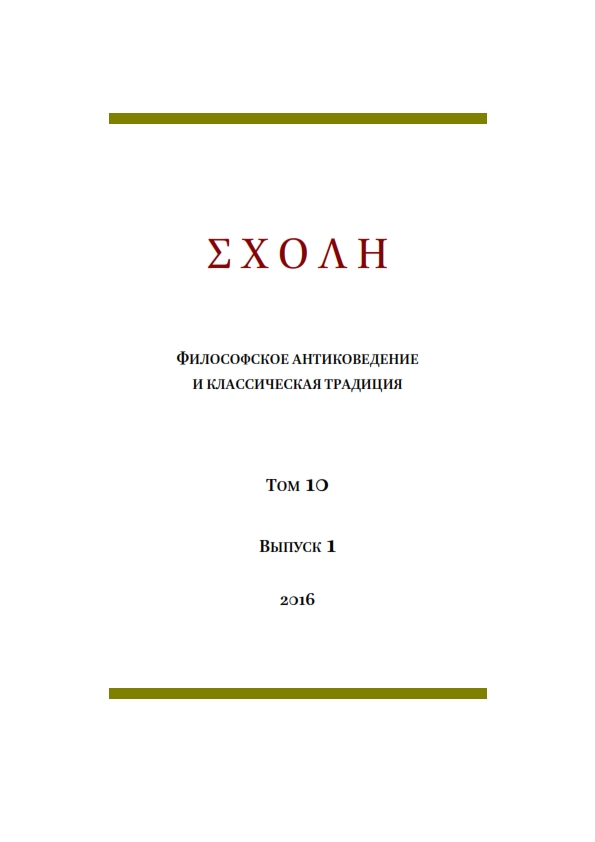
The article treats a medieval text Vita Donati grammatici (The Life of Donatus), containing biographical information concerning [Aelius] Donatus, a Roman grammarian of Late Antiquity. The history of the scholarship of this text, as well as its contents, possible reasons of creation, its genre, and some eccentric and parodic features are under consideration. The study is accompanied by an English and a Russian translations of the Latin original text.
More...
Galen’s last work, De propriis placitis (On my own opinions) has a very complex textual history. Except to few extracts, the Greek original of the treatise is lost. The last two chapters of the treatise, entitled On the substance of natural faculties, circulated independently in a fourteenth century translation into Latin by Niccolò da Reggio. The main body of treatise is preserved in a medieval Latin translation made from an Arabic translation (as numerous words, transliterated from the Arabic, testify). There is also a quote in Hebrew. Fortunately, some time ago V. Nutton (1999) published an excellent commented edition of the treatise. It has proven indispensable for the present study, as well as a recent publication of a newly discovered Greek text by Boudon-Millot and Pietrobelli (2005). The treatise, important for understanding of Galen’s various opinions, certainly deserves a close study. It is now translated into the Russian for the first time.
More...
The Francesco Petrarch’s philosophical prose written in Latin is practically unknown to the Russian reader. The Italian humanist wrote six philosophical treatises, several invectives, and a huge number of letters. The biggest in volume composition is a treatise“Means against the Vicissitude of Life”. The article deals with the problems of its translation from Latin into Russian. By its style the work is referred to a literary text; therefore, a translation should be carried out with deep consideration of its original flavor. Any translation of the foreign-language text has its certain limits of convertibility. It should be considered that one and the same word in different languages can have different emotional saturation and cause other associations. The author of the article pays special attention to the translation of synonymic ranks, word-plays, specific syntactic designs (gomeoteleutus), and to the problem of Latin realities’ transfer.
More...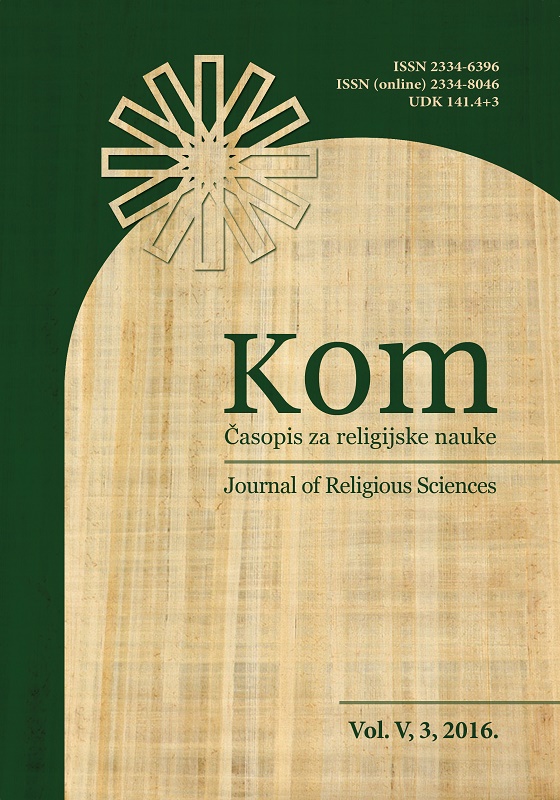
In the X century, when numerous representatives of scientific and cultural life of Muslims appeared, a secret philosophical-political group Ikhwan al-Safa was formed whose members tried to ideologically oppose the central caliphate leading political set. Believing that it is imperative that Muslim society should move towards ideals established back in the VII century the prophet Muhammad, and that Umayyad and Abbasid Caliphates did not advocate those ideals, they tried in their works – published under the name of Rasa’il Ikhwan al-Safa (Epistles of the Brethren of Purity) – to clarify in detail their philosophical, social and political attitudes. The Epistles is an encyclopaedic review of almost all previously known scientific disciplines. They are 51 or 52, if we count the last one that offers a short overview of all the previous ones. In their Epistles, the Ikhwan al-Safa representatives wrote about a variety of scientific disciplines, such as philosophy, physics, astronomy, mathematics, geometry and music. Still, they did not neglect social sciences, and they extensively discussed the relationship between man and society, the role of government in the community, the issues of social justice, of bliss, the relationship between politics and religion, social life models, and many other topics. In this article we will try to look at the basic features of their social thought. It should be noted that the views of this group representatives significantly influenced the development of various scientific disciplines in Islam, and the way they worked had an impact on many theological branches such as Ismaili Muslims. In fact, in the Ismaili fortresses of Gazarhan, Lambasar, Shahdej, Tabas, and Qohestan, many historians have noted traces of covert activities of the Ikhwan al-Safa group members.
More...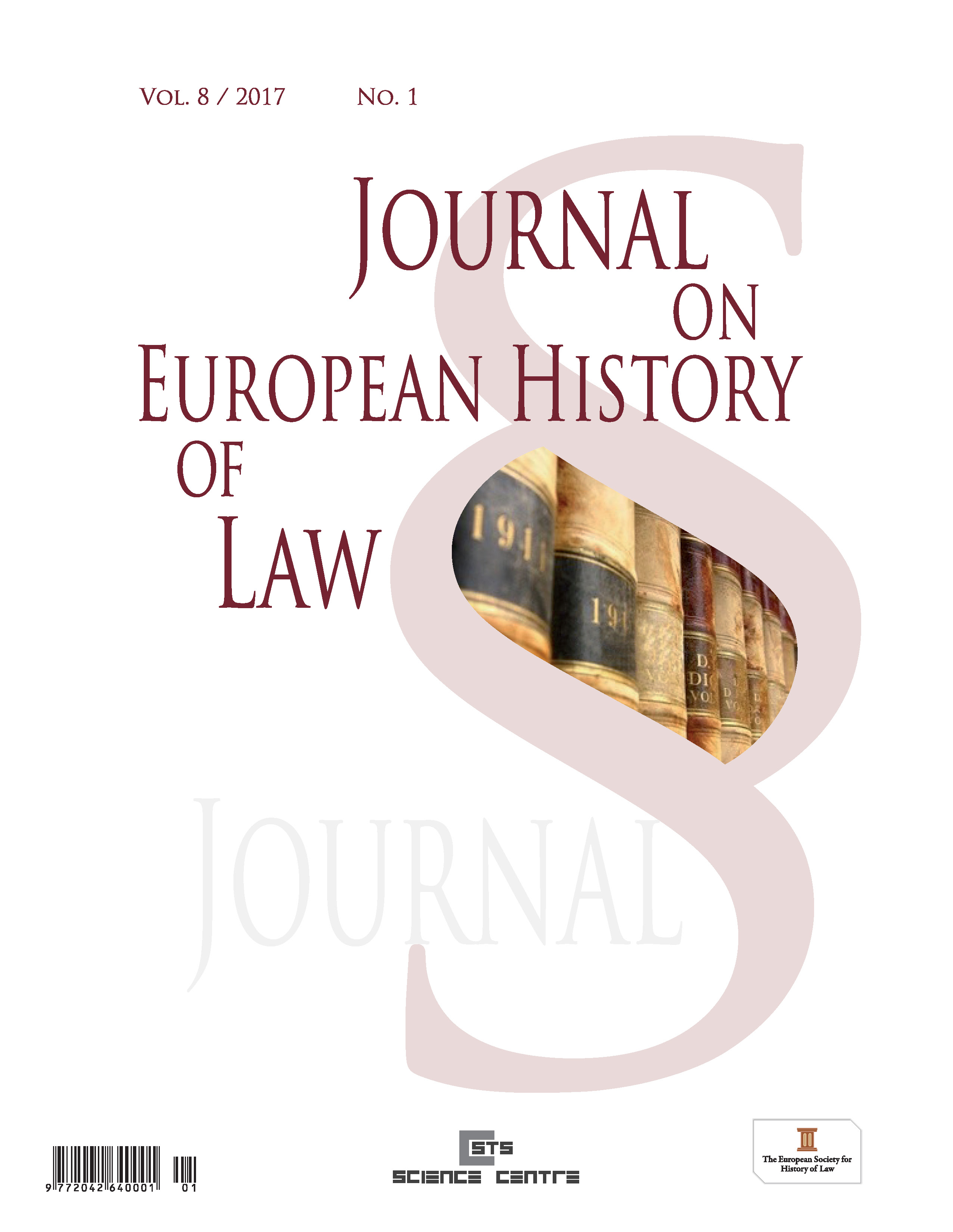
The present article offers the single magisterial view to be found in a Gierke, a Carlyle, or an Ullmann. Its aim is, rather, to present a conspectus, as comprehensive as is possible within prescribed limits of space, of the present state of historical scholarship in the field surveyed. Such a conspectus need not be, nor is it here, so neutral as to preclude critical assessment. The judgements of the authors concerned have been brought to bear upon the issues arising in scholarly debate; and since the division between one article and another cannot be absolute and rigid, there is room for differences of emphasis and approach in the handling of topics that are relevant to more than one article. It is hoped that such differences do not amount to contradictions and that their presence may yield a degree of cross-fertilisation rather than confusion.
More...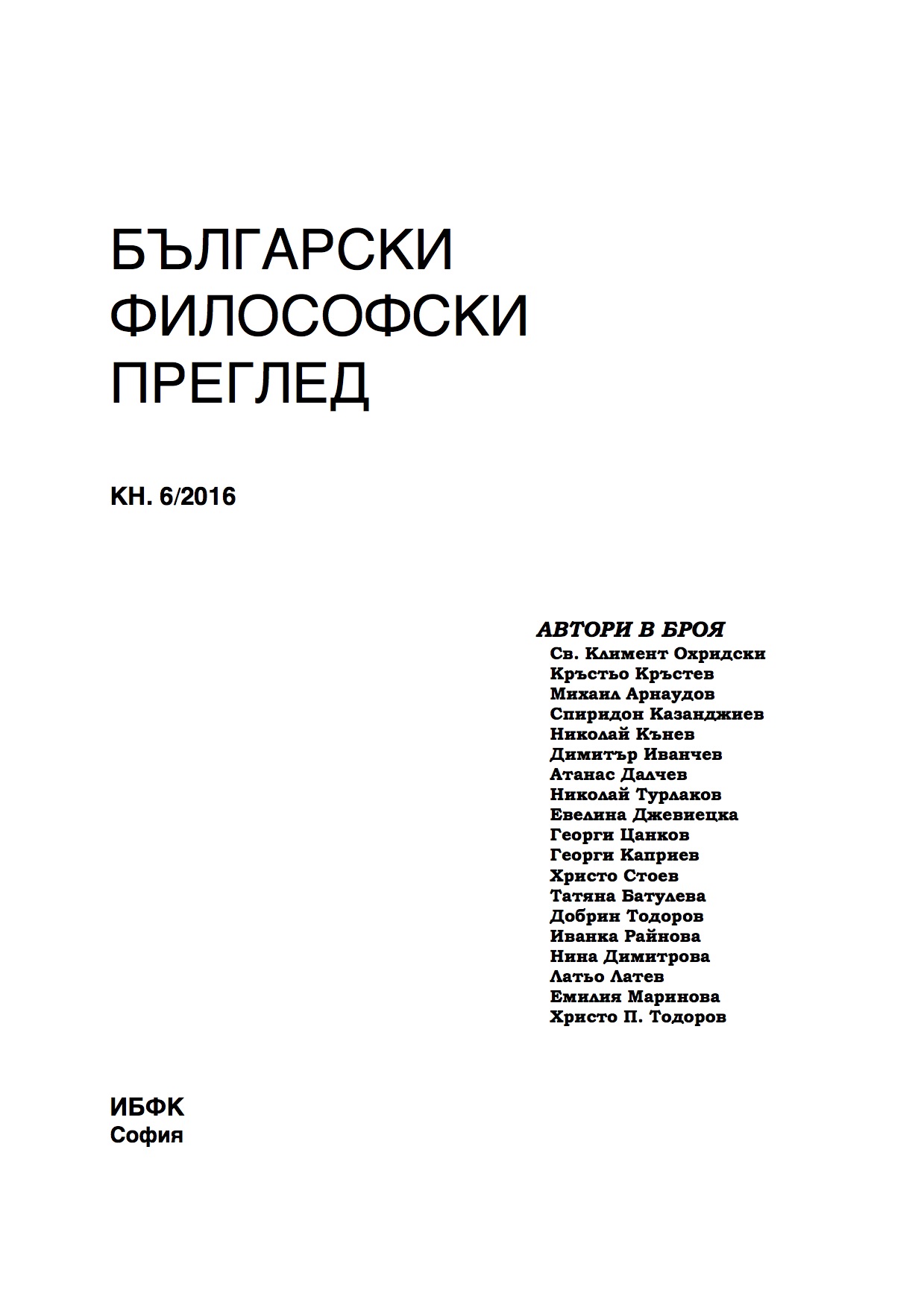
The aim of this article is to demonstrate the potential of postsecular thought in the study of modern literature on the basis of two Bulgarian texts, different in form and time of writing, but signifying the frame of the interwar period: the story by Konstantin Velichkov Юда (“Judas”, 1911) and the drama by Ivan Grozev Съдний ден (“The Judgement Day”, 1939–1940). The analysis focuses on the cryptotheologies of the writers deconstructed on the basis of the meanings evoked by the event of the Crucifixion and in this context – the fate of the Betrayer.
More...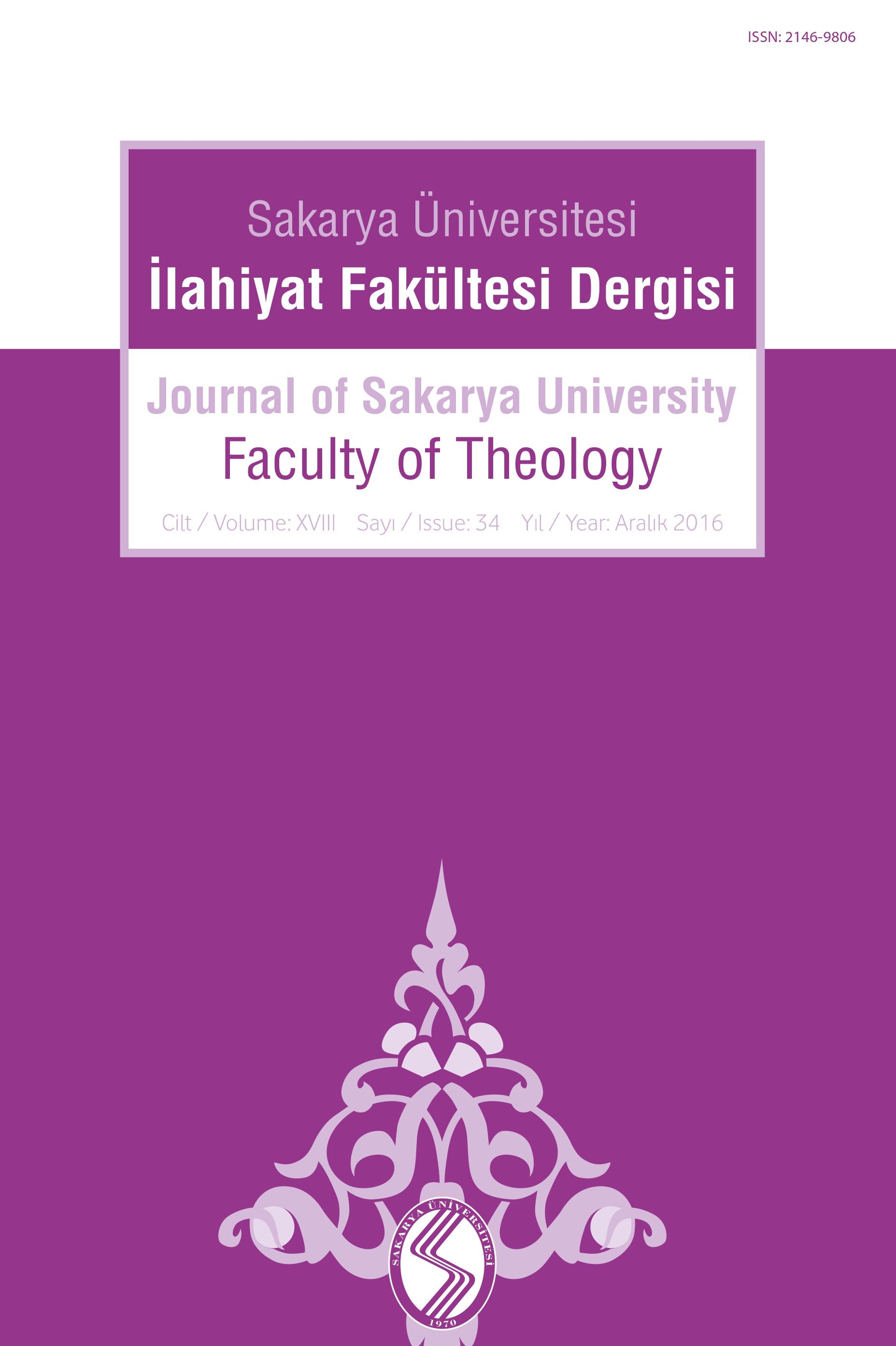
The purpose of this study is to examine the statements of Ibn al-ʿArabî regarding religions and beliefs through the perspectives of William Chittick and Reza Shah-Kazemi comparatively. Even though his expressions are occasionally elaborated in the light of the theory of the religious pluralism based on Western-Christian thought, by considering the universal message of the Qur’ān Chittick and Shah-Kazemi identify these expressions with “universalism.” This universalist approach bases on the distinction between “ontological will” and “religious will,” and “submission” which is the substance of the term “islam.” While Chittick and Shah-Kazemi agree on issues mostly, it is possible to see that in some sense they differ from each other in their departure points and results. From this perspective, it is going to be seen that Ibn al-ʿArabî’s expressions encompass both the divine religions and other religions which do not have a revelation. To examine Ibn al-ʿArabî’s expressions by taking into account the propositions of the religious pluralism will be helpful to comprehend his outlook on the Qur’ān and the Prophet Muhammad.
More...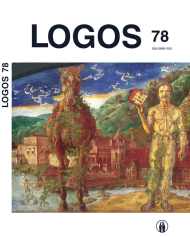
Summa Contra Gentiles. Book III. Providence. Chapters 88–91
More...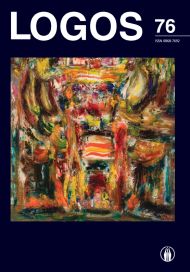
Summa Contra Gentiles. Book III. Providence. Chapters 84–85
More...